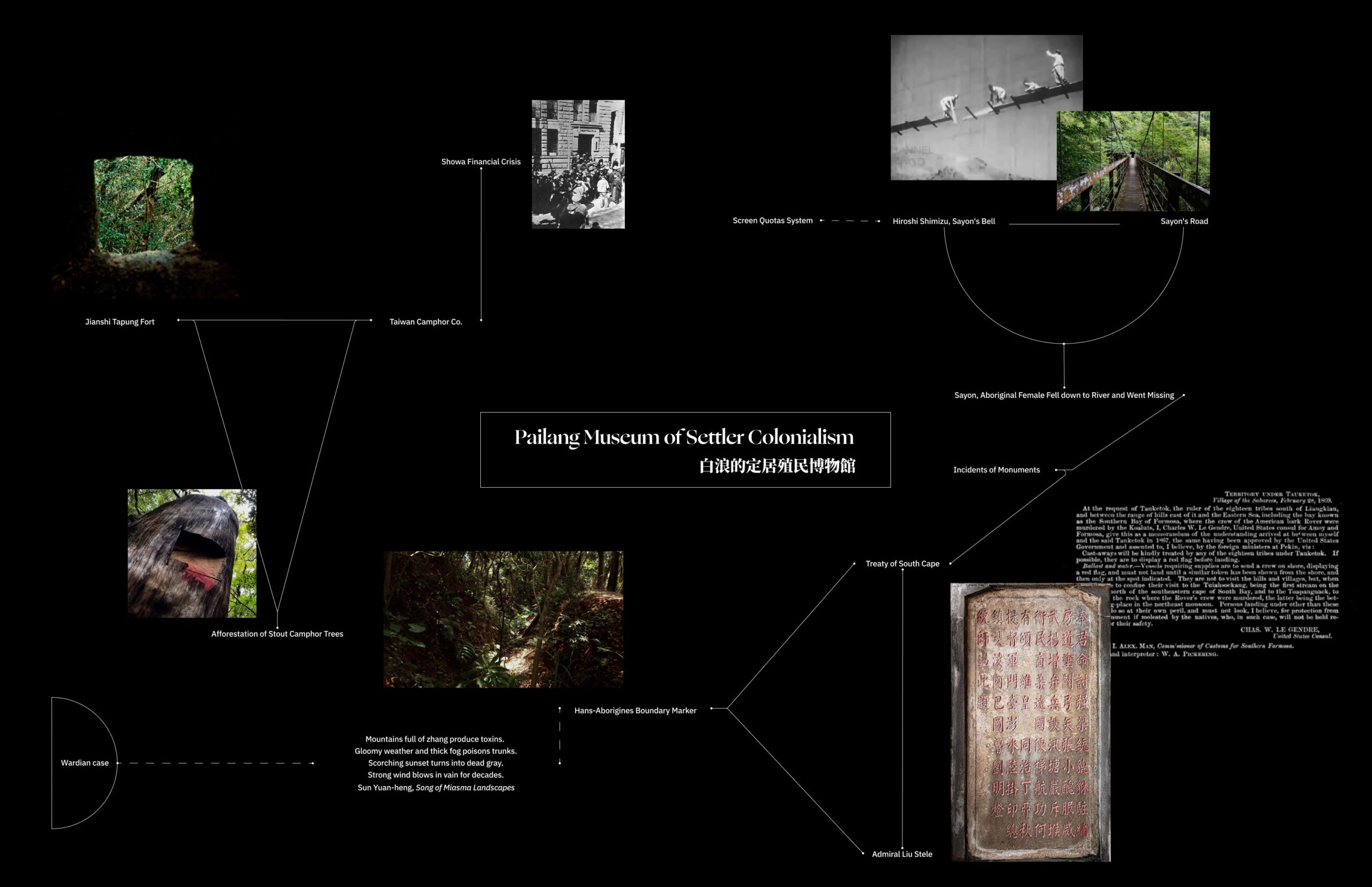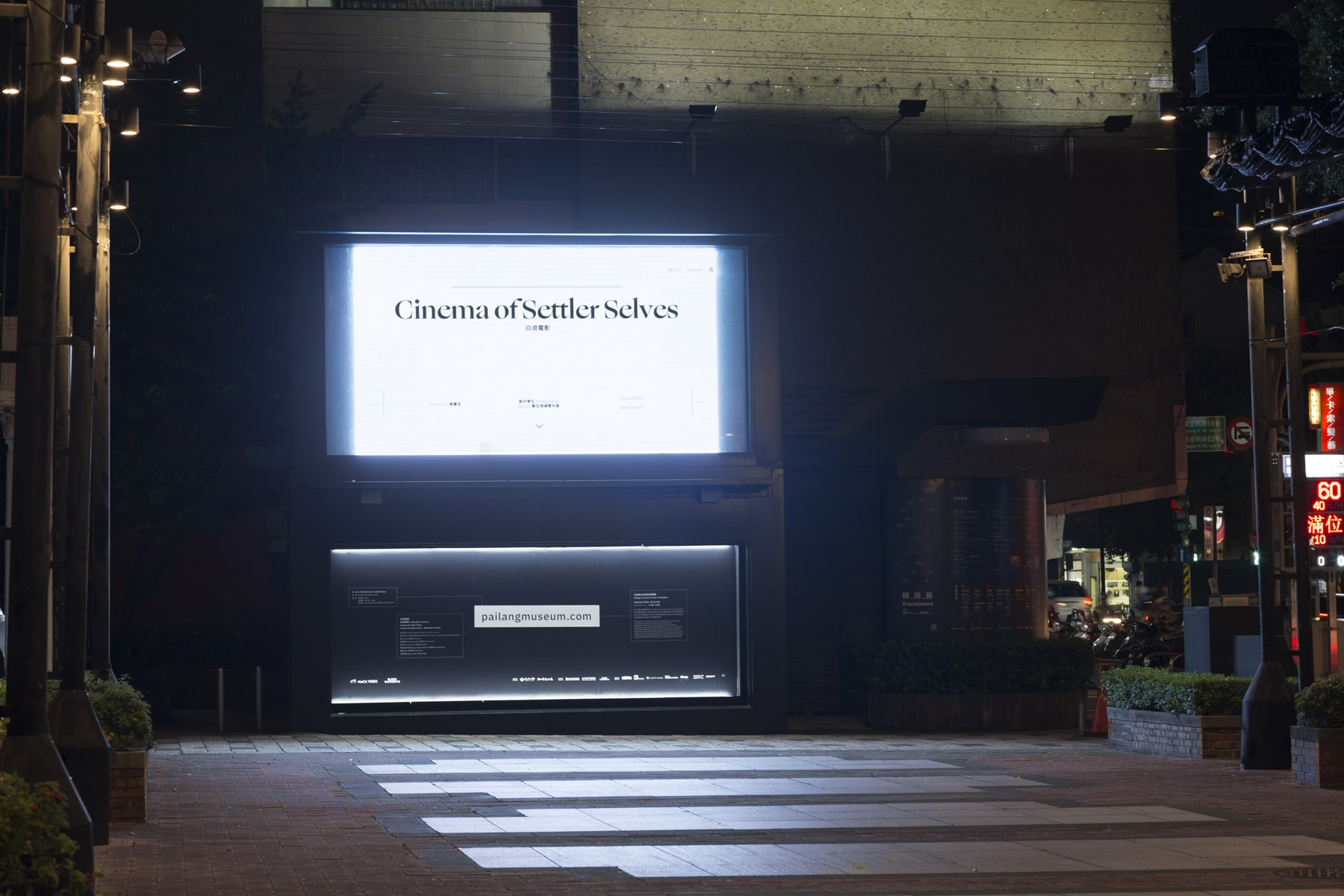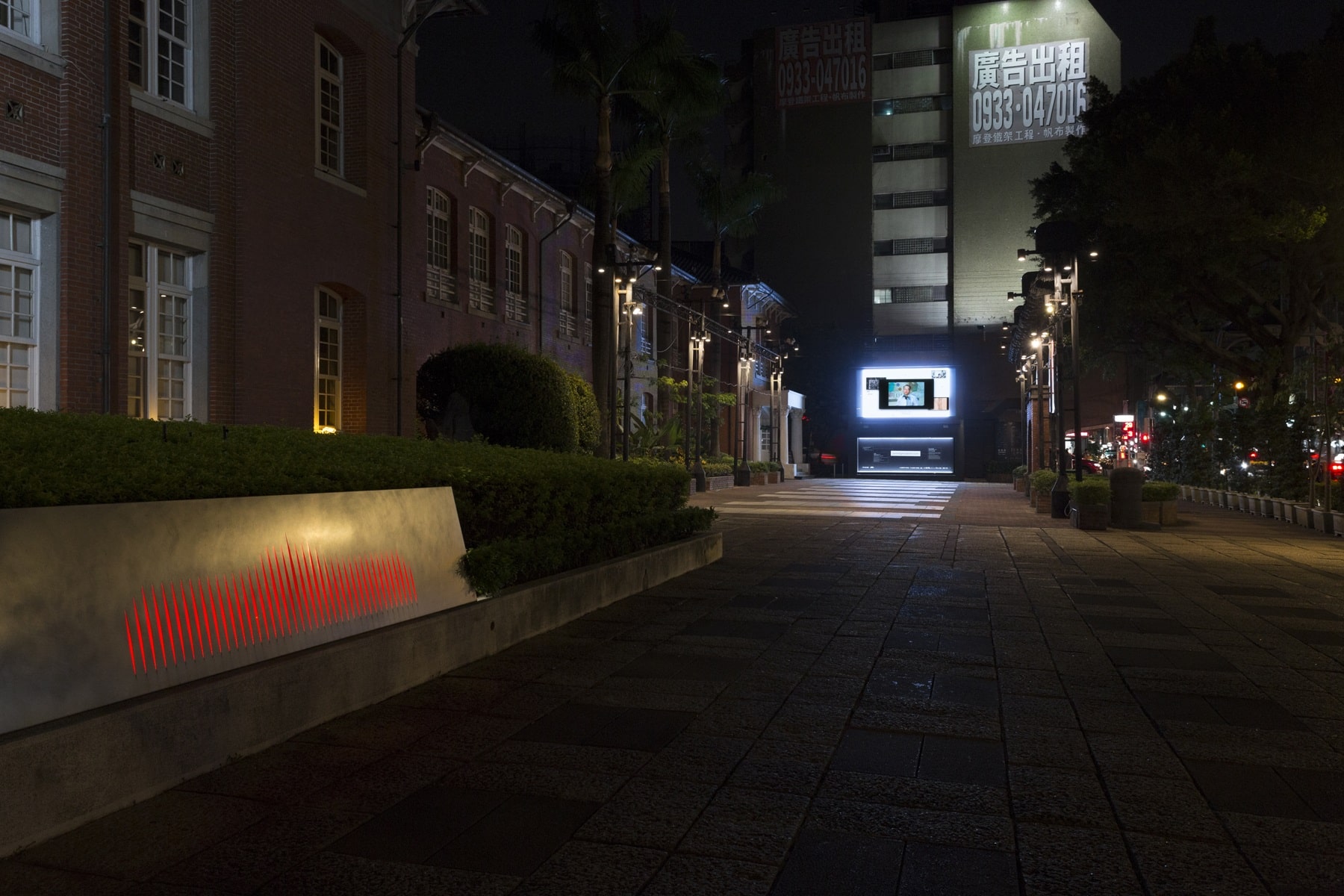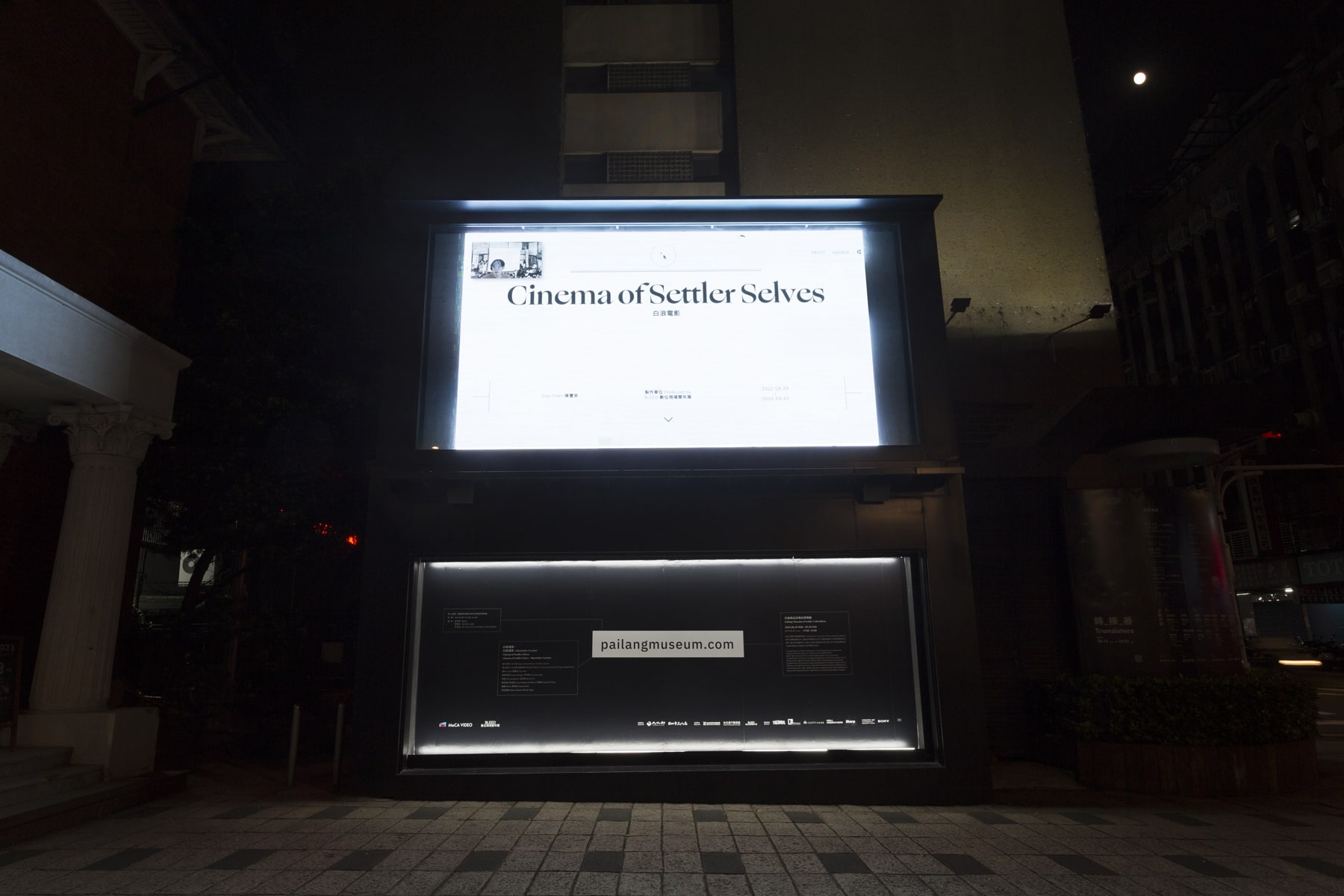
Pailang Museum of Settler Colonialism
Wu Chi-Yu
Pailang Museum of Settler Colonialism (2022–), or The Pailang Museum, is a Sinophone media collective that commissions speculative writing, screening programs and decolonial guided tours along with experimental film production. The word pailang is Chinese-Hokkein pronunciation of “villains” commonly used by Taiwanese Indigenous groups to call their settler counterpart: Chinese-Formosan.
While pailang is no longer a pejorative term, the settler colonialism structure has persistent effects, and has largely been embedded in the texture of everyday life. With our aim to experiment with a denaturalized presentation of the settler gaze and its historicity, the Pailang Museum serves as an active platform in narrating a plethora of ways in which settler colonial subjects organise land and, as it were, its species.





